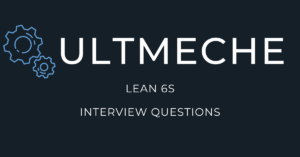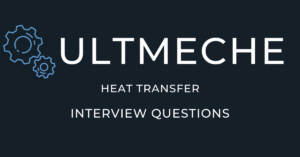It’s tough out there, you need to know how to network for jobs if you want to move up in your career.
Although being a high performer and having strong technical skills is good, it’s not enough when it comes to networking. You need to build solid communication skills and let it known that you’re a high performer.
When it comes to job searching, you also need to leverage your resources as widely as possible.
This includes reaching out to family, friends, mentors, colleagues, and anyone you can think of.
Along with physically reaching out to those you know, leverage technology such as LinkedIn to maximize your job network.
Use these 7 ways to learn and optimize how to network for jobs.

Leverage your family and friends
Reach out to your family and friends as often as you can to network for jobs.
Your family and friends will have various ties to different industries and positions, which you can use to find yourself a job.
This is very helpful when you get laid off or are looking to advance in a new career at a different company.
Getting promoted from your current position is harder than finding a new job and getting paid more.
It’s much easier to get a higher salary when you go from your current job to another one, as opposed to trying to get promoted from within your company.
It’s unfortunate the game is set up like this, but you need to play it accordingly if you want to maximize your compensation.
Companies don’t incentivize loyalty, which is why the current culture consists of job hopping from one to another.
Your friends and family will be able to help you get jobs through their existing networks.
See: What to do when you’re laid off
Optimize your LinkedIn
Along with leveraging your existing network of family and friends, you need to optimize your LinkedIn.
LinkedIn allows you to connect with those who you wouldn’t normally connect with in a professional setting.
You need to maximize the number of connections you possibly can to make your profile more relevant.
Connect with friends, family, colleagues, mentors, professors, and anyone who you can think of.
LinkedIn is also a powerful tool that job seekers use to search for openings.
See: How To Optimize Linkedin Profile For Recruiters
Attend Social Gatherings
You should be seeking to go out as often you can. Even if you feel uncomfortable going out with those in a professional setting, this is a skill you need to develop to maximize your career. You need to learn how to connect with your coworkers, with topics outside of work.
Attend gatherings such as lunches, parties, games, dinners that your company offers. Even focus on attending social gatherings with your friends and family, as these can be used for networking opportunities too.
If you’re an introvert, unfortunately this will be more difficult for you, but being able to attend social gatherings is key in knowing how to network for jobs.
Explore Hobbies
Adding more hobbies not only makes you a more interesting person, but will expand upon your existing network.
Some good hobbies to get into for networking for jobs include:
- Going to the gym (bonus points if it’s a luxury gym)
- Climbing
- Hiking
- Martial Arts
- Surfing
These all provide an environment in which you can socialize with others while doing the activity. You will also meet high quality individuals as these type of hobbies bring out character.
It’s pretty easy to make friends this way when you already have something in common.
You can then leverage that to learn how to network for jobs.
Upon building close relationships with friends, it gets easy to talk about work stuff.
If either one of you two end up needing a job, you’ll be able to provide support for each other.
Learn to Communicate
Proper communication skills are hard to come by.
When you’re a good communicator, this makes it easy to build relationships.
This is especially helpful in professional settings and will help you advance your career.
Along with being a solid performer at work, you need others to know that you are a solid performer.
Don’t just focus on the technical side of things, but also focus on the softer side of things when it comes to in person relationships at work.
Don’t focus on technical skills so much that you don’t know how to effectively communicate what you’re doing along with your accomplishments to others. This is another skill itself that you will need to learn in a corporate setting.
See: 7 Tips on How to Build Communication Skills
Offer Value
In any professional setting, your interactions should also be opportunities for you to provide value.
Look to contribute wherever you can in the interactions you’re in such as meetings, presentations, design reviews, conference calls or more.
When you’re known as someone that can deliver value, this will give you more opportunities and will make you considered for advancement through new jobs or promotions.
Offering value can be something such as providing specific input on how a process should work or giving the team an update on a key milestone which lead to positive impacts.
Updating others, teaching others, and accomplishing tasks are a great way to offer value to the team around you.
Make it known that you’re a high performer, as this is more important than being a high performer by itself, especially in a professional or corporate setting.
Connect with People
Build relationships with people whenever you can.
If you’re working on-site then you have opportunities to chat with the people around you – work stuff or non work related.
These interactions provide opportunities to connect with your colleagues.
If you’re working from home, set some time aside to message and call your colleagues.
The biggest connections start to form through the littlest things.
The person that you talk to in the coffee room during your break could be one of your biggest assets down the line.
You never know what opportunities people can give you so it’s important that you leverage everything possible to grow your network.
ULTMECHE Career Services
About the author

Kazuyoshi Fujimoto, PE
Founder | Engineering Career Coach | Principal Mechanical Engineer
Kazu oversees all of ultmeche’s engineering services. He provides consulting such as resume reviews, rewrites, mock interviews, and all services career related. Additionally, Kazu performs consulting work regarding Oil & Gas, Automotive, and Aerospace & Defense. Kazu is licensed as a professional engineer in the state of California and has 9+ years of experience in Oil & Gas, Automotive, and Aerospace & Defense.
Explore more of our recent articles
- Lean 6S Interview QuestionsDon’t understand basic Lean 6S interview questions? You won’t get the job. Think companies such as Ford, Toyota, GM, 3M, GE, Amazon, and tons more companies. Any company that does high scale production will utilize Lean 6S to streamline manufacturing. They don’t do it because they want to, they do it because they have to. … Read more
- Counter Flow vs Parallel Flow in Heat ExchangerThe concept of Counter Flow vs Parallel Flow in a Heat Exchanger comes up in your heat transfer class and it is important to understand. If you don’t understand this basic concept, you won’t be able to get the job. Think companies like Tesla, SpaceX, Blue Origin, Boeing, Raytheon, Northrop Grumman, etc. Understanding this mechanism … Read more
- Heat Transfer Interview Questions – Top 16Don’t understand basic heat transfer interview questions? You won’t get the mechanical engineering job. Think companies like Tesla, SpaceX, Blue Origin, Boeing, Raytheon, Northrop Grumman, etc. Knowing basic heat transfer is necessary for both for a job interview and for general knowledge as a Mechanical Engineer. You will not provide value if you don’t understand the … Read more
- USC Resume TemplateIf you’ve been looking up resume templates online, then you’ve heard of the USC Resume Template. It’s an effective template that’s based off three key fundamental frameworks that USC provides in their career centers in schools such as USC Marshall School of Business and USC Viterbi School of Engineering: The frameworks of the USC Resume … Read more
- UC Berkeley Resume TemplateIf you’ve been looking up resume templates online, then you’ve heard of the UC Berkeley Resume Template. It’s an effective template that’s based off three key fundamental frameworks that the UC Berkeley Career Center advocates to their students to land top jobs at companies like Apple, Meta, Google, and Netflix: The frameworks of the UC … Read more






4 thoughts on “How to Network for Jobs (The 7 Ways)”